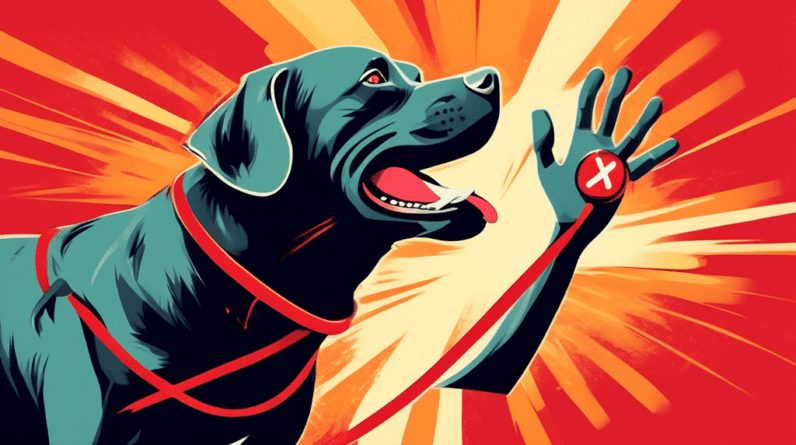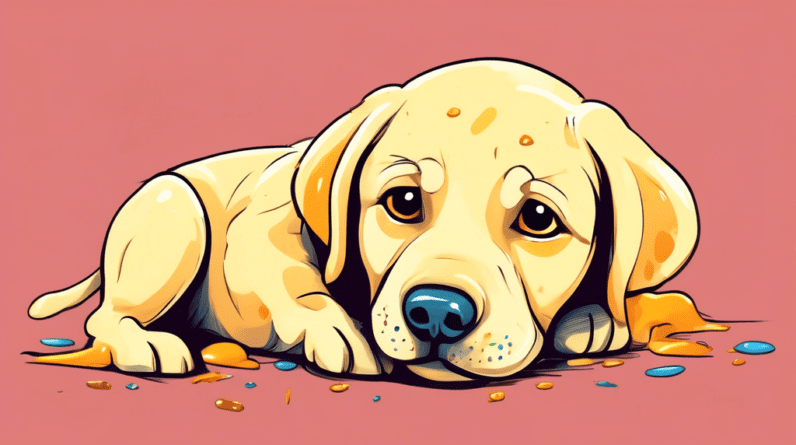
How Much Protein Does a Labrador Need?
Labrador Retrievers are beloved companions known for their friendly
demeanor, intelligence, and love of food. As a large breed with
abundant energy, providing them with the right nutrition is crucial for
their overall health and well-being. Among the essential nutrients,
protein plays a vital role in their growth, development, and daily
functions. This article delves into the protein needs of Labradors,
helping owners make informed decisions to ensure their furry friends
thrive.
Why Protein Matters for Labradors
Protein is an essential macronutrient that serves as a building block
for various tissues in a Labrador’s body. It’s composed of amino
acids, which are crucial for:
-
Muscle Growth and Repair: Labradors are an
active breed, requiring strong muscles for running, playing, and
retrieving. Protein provides the building blocks for muscle growth
and helps repair any damage caused by exercise. -
Healthy Skin and Coat: Protein is essential for
producing keratin, a protein that forms the basis of their skin,
hair, and nails, ensuring a shiny coat and healthy skin. -
Hormone Production: Hormones regulate various
bodily functions, including growth, metabolism, and reproduction.
Protein is crucial for producing these essential hormones. -
Enzyme Activity: Enzymes are proteins that
facilitate numerous biochemical reactions within the body, including
digestion and energy production. -
Immune Function: Antibodies, a crucial
component of the immune system, are proteins that help fight off
infections and protect your Labrador from diseases.
Protein Requirements Throughout a Labrador’s Life
The amount of protein a Labrador needs varies depending on several
factors, including their age, activity level, and health status. Here’s
a general guideline:
Puppies (Up to 12 Months)
Labrador puppies experience rapid growth, demanding higher protein
intake than adult dogs. Their food should contain around 22-30%
protein to support this growth spurt and development.
Adults (1-7 Years)
Once Labradors reach adulthood, their protein requirements decrease
slightly. Adult Labradors with moderate activity levels generally need
around 18-25% protein in their diet to maintain muscle mass and overall
health.
Seniors (7+ Years)
As Labradors age, their metabolism slows down, and they become less
active. However, they still need adequate protein to prevent age-related
muscle loss and maintain a healthy weight. Senior Labradors can benefit
from a diet containing around 20-25% protein.
Factors Influencing Protein Needs
While the above guidelines provide a general idea, individual protein
needs can vary based on:
-
Activity Level: Highly active Labradors, such as
working dogs or those participating in agility training, require
more protein than less active dogs to support their increased
muscle mass and energy expenditure. -
Health Conditions: Certain health conditions,
such as kidney or liver disease, may necessitate adjustments in
protein intake. Consult your veterinarian to determine the
appropriate protein levels for Labradors with specific health
concerns. -
Pregnancy and Lactation: Pregnant and lactating
Labradors require increased protein intake to support the growth and
development of their puppies.
Choosing the Right Protein Sources
Not all protein sources are created equal. High-quality protein sources
are more digestible and provide a better amino acid profile, ensuring
your Labrador utilizes the protein efficiently. Some excellent protein
sources for Labradors include:
- Chicken: A lean and highly digestible protein
source rich in essential amino acids. - Fish: Salmon, herring, and cod are rich in
omega-3 fatty acids, benefiting skin and coat health, along with
providing high-quality protein. - Beef: A flavorful source of protein rich in iron
and other essential nutrients. - Eggs: A highly digestible protein source that
contains all essential amino acids. - Lamb: A highly digestible protein source that is
often well-tolerated by dogs with food sensitivities.
Signs of Protein Deficiency
While rare, protein deficiency can occur in Labradors, especially if
they’re fed a poorly balanced diet. Watch out for these signs:
- Poor growth and weight loss
- Muscle wasting
- Dull coat
- Skin problems
- Weakened immune system
If you notice any of these signs, consult your veterinarian to determine
if your Labrador’s diet lacks protein.
The Risks of Too Much Protein
While protein is essential, excessive protein intake can strain a
Labrador’s kidneys, especially those with pre-existing kidney
conditions. High-protein diets can also contribute to obesity, as excess
protein is converted to fat.
Tips for Meeting Your Labrador’s Protein Needs
Here are some practical tips to ensure your Labrador gets the
appropriate amount of protein:
-
Choose High-Quality Dog Food: Opt for
high-quality commercial dog food formulated for Labradors and
their life stage. Look for food with a named meat source, such as
chicken, fish, or beef, as the first ingredient. -
Read the Label: Pay close attention to the
guaranteed analysis on dog food labels. This section indicates the
minimum percentage of crude protein in the food. -
Consult Your Veterinarian: Your veterinarian can
help you determine the appropriate protein intake for your Labrador
based on their individual needs. -
Consider Homemade Diets Carefully: While
homemade diets can be an option, they require careful planning to
ensure nutritional balance. Consult a veterinary nutritionist for
guidance on formulating a balanced homemade diet that meets your
Labrador’s protein requirements. -
Avoid Overfeeding: Stick to the recommended
feeding guidelines on the dog food label and adjust portions based
on your Labrador’s activity level and body condition.
Conclusion
Protein is an essential nutrient for Labradors, playing a crucial role
in their growth, development, and overall health. By understanding
their protein requirements throughout different life stages and
considering individual factors, owners can ensure their Labradors
receive the appropriate amount of this vital nutrient. Providing a
balanced diet with high-quality protein sources contributes to a long,
healthy, and active life for these beloved companions. Remember to
consult your veterinarian to determine the optimal protein intake for
your Labrador and address any specific dietary needs.






